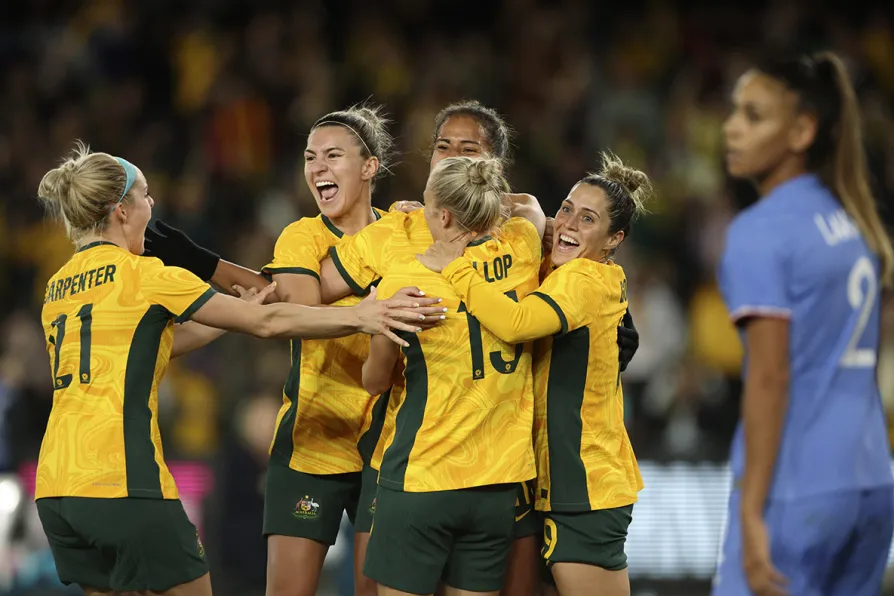JAMES NALTON on Munyua’s stinging success at the World Darts Championship

 Australia's Mary Fowler is congratulated by teammates after scoring against France during their friendly in Melbourne, Friday, July 14, 2023, ahead of the Women's World Cup
Australia's Mary Fowler is congratulated by teammates after scoring against France during their friendly in Melbourne, Friday, July 14, 2023, ahead of the Women's World Cup
AS THE 2023 Fifa Women’s World Cup kicks off this week in Australia and New Zealand, viewers will be able to watch the opening games involving both host nations live on the BBC and ITV.
New Zealand’s game against Norway opens the tournament, kicking off at 8am on Thursday morning British Summer Time and being broadcast on BBC1.
It is followed by Australia against the Republic of Ireland on ITV at 11 am, with England’s first game, against Haiti, being shown on ITV at 10.30 am on Saturday.
This blanket coverage of every game, not just the home nations, on terrestrial TV means it could be one of the most watched women’s football tournaments in history.
The kick-off times will not be considered prime time viewing slots in many countries, but as is usually the case of women’s sports, if it is readily available to watch, and not awkwardly hidden behind a streaming service or red button, people will watch it.
This has been shown to be the case by increased attendance and viewing figures in recent times.

JAMES NALTON takes a look at the German league’s move to grow its audience in Britain, and around the future of football on TV in general

JAMES NALTON discusses the use of dynamic ticket pricing at the 2026 World Cup and how it amplifies a culture already set up to squeeze as much money from fans as possible












